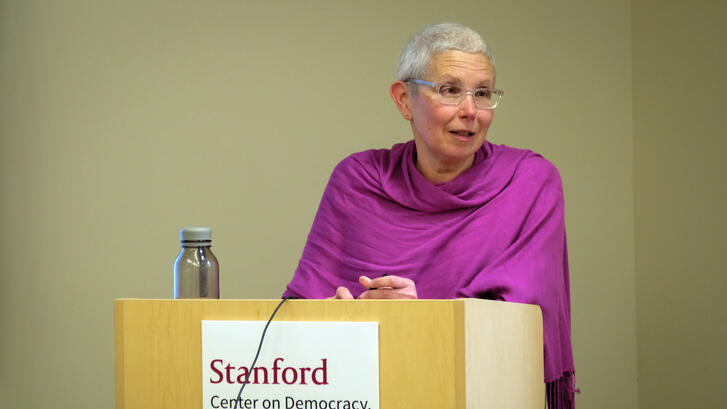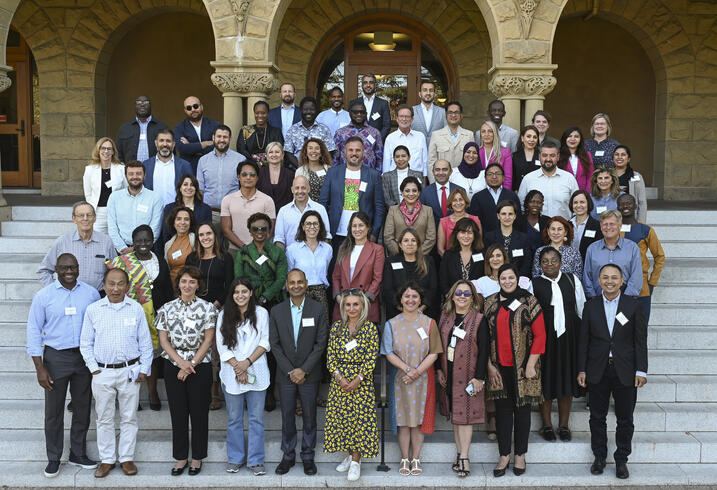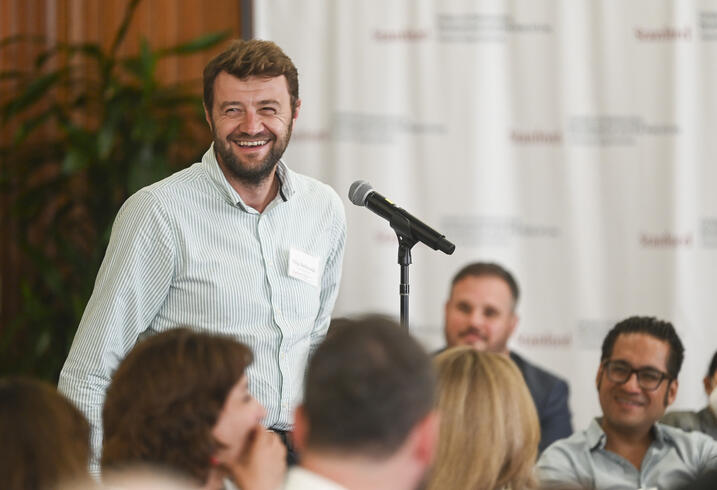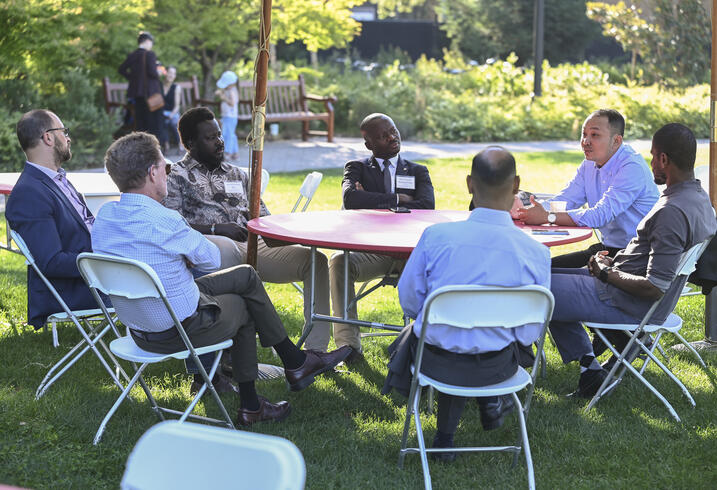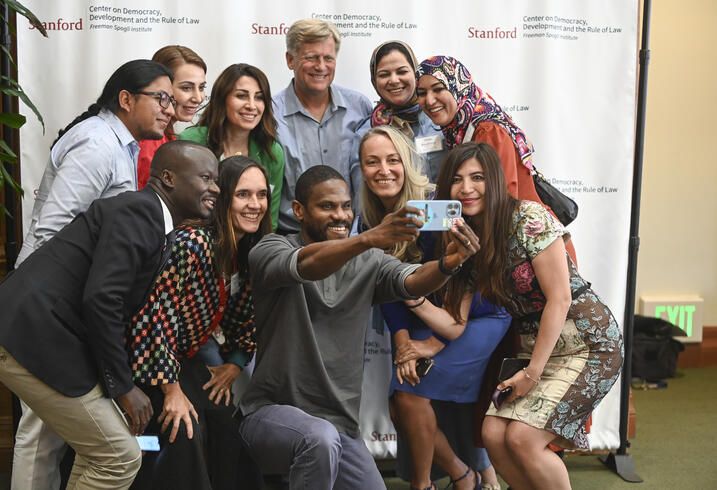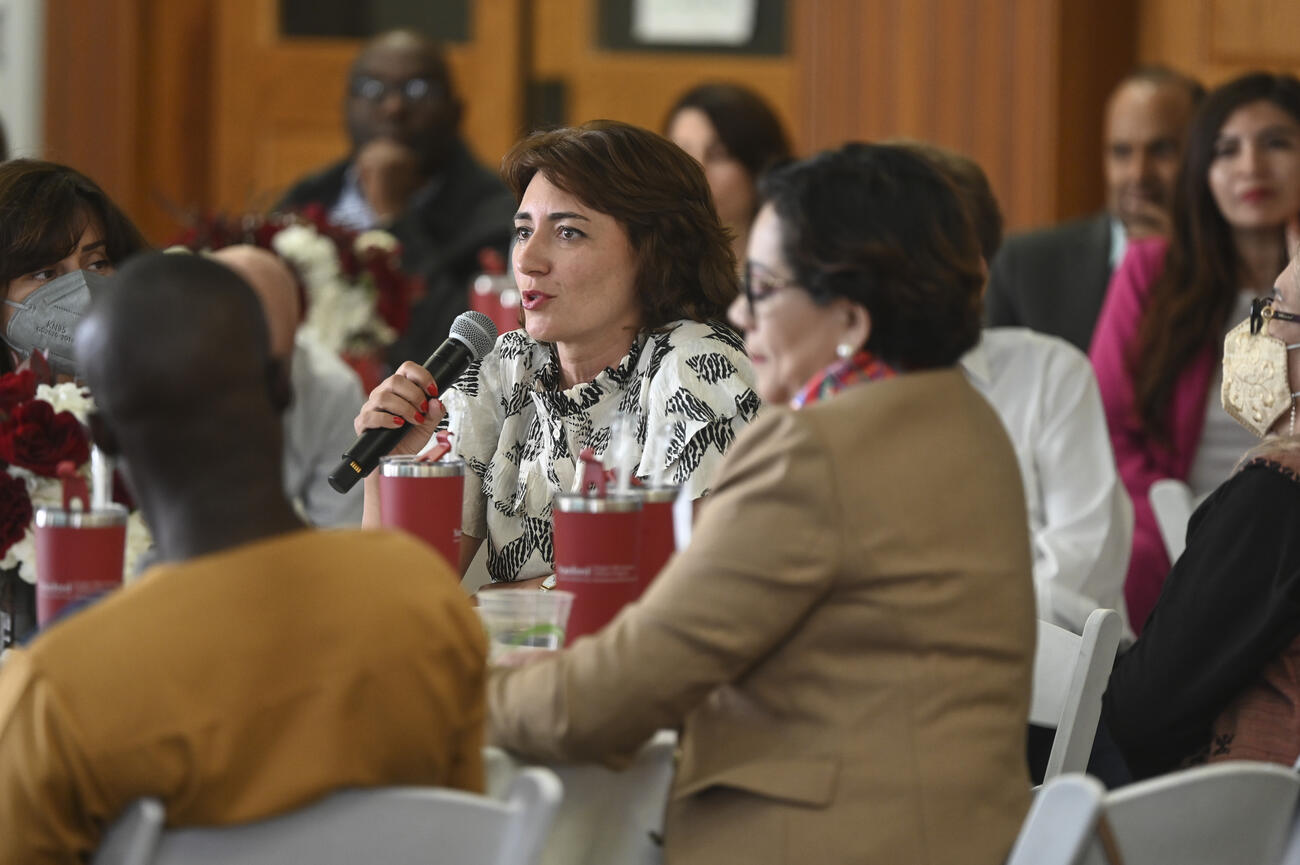America Votes 2024, Part 2: Limits of Forecasting, Declining Trust, and Combating Polarization
The second of four panels of the “America Votes 2024” series featured critical reflections on the reliability of forecasting models, declining trust in American elections, and reforms to combat polarization. Moderated by Michael Tomz, the William Bennett Munro Professor in Political Science and Chair of Stanford’s Department of Political Science, the panel featured Stanford scholars Brandice Canes-Wrone, Justin Grimmer, and Larry Diamond, each drawing on their research to address the complexities shaping the 2024 election. The “America Votes 2024” series is co-organized by CDDRL, the Hoover Institution’s Center for Revitalizing American Institutions, and the Institute for Research in the Social Sciences.
Can We Trust The Polls?
Brandice Canes-Wrone, Professor of Political Science and Director of the Hoover Institution’s Center for Revitalizing American Institutions, provided a succinct overview of different forecasting models, touching on their limitations and recent adaptations. Historically, models like that of economist Ray Fair have centered their election predictions on fundamentals like the economy. These models face two main limitations. First, they do not incorporate opinion polls on the candidates themselves. Second, even if voters care about economic performance, increasing partisanship has skewed subjective perceptions of the economy. Some forecasting models have responded by weighing partisanship more in their calculations, though these poll-reliant frameworks present their own limitations as well. Currently, even the most accurate models suggest this uniquely tight race remains too close to call.
Shifting to the two candidates themselves, Canes-Wrone points out that campaign messaging from both sides aligns with the expectations of most analysts. Reacting to high inflation rates, Donald Trump has centered his campaign on economic promises while Kamala Harris tries to “turn the page” to distance herself from President Joe Biden. Both their campaign strategies echo a historic shift from persuading swing voters to mobilizing their bases. Trump has taken a rather unconventional approach to the ever-important ground game, largely outsourcing mobilization to Super PACs. As Canes-Wrone argues, however, the factors determining presidential outcomes have changed far less than the rest of US politics in the last 50 years.

Restoring Trust in Elections
Americans have shown declining levels of trust in elections. While many picture January 6th as the root of this distrust, Justin Grimmer — Morris M. Doyle Centennial Professor of Public Policy and Senior Fellow at the Hoover Institution — argues this turning point occurred two months earlier when Trump falsely declared victory on election night. Since then, several Republican politicians have denounced electoral losses with a series of expansive voter fraud accusations. Some Democrats have also begun to mirror these undemocratic maneuvers under a different rhetoric.
Grimmer warns that if Trump were to win the election by a narrow margin, Democrats might argue that voter suppression caused them to lose. Yet, according to Grimmer, neither argument — voter fraud nor voter suppression — holds enough weight to justify overturning the election result. Studies show that election reforms provide no partisan benefit to either party. To restore Americans’ trust in their electoral institutions, both candidates must honestly accept the results of the November election, regardless of the outcome.

Ranked Choice Voting to Combat Polarization
Larry Diamond, Mosbacher Senior Fellow in Global Democracy at the Freeman Spogli Institute for International Studies (FSI) and William L. Clayton Senior Fellow at the Hoover Institution, echoed Canes-Wrone and Grimmer in emphasizing the apparent hyper-partisanship and institutional distrust endangering American democracy. Diamond argued that, despite centuries of center-leaning politics under the Electoral College, this system now serves to heighten the social, economic, and informational factors driving polarization. The two-party dominant system is in dire need of structural reforms.
Diamond advocated for the adoption of Ranked Choice Voting (RCV) to reduce polarization. RCV is hardly a panacea, but it offers alternatives to bipartisanism by making room for moderate candidates, incentivizing parties to form broad coalitions, and affording voters more choices on their ballots. This transition, Diamond noted, is easier said than done as the polarized electorates that would benefit most from RCV are likely also most opposed to it. Beyond state-level efforts, Diamond stressed the need for bottom-up mobilization and education initiatives to accompany the implementation of RCV.

The upcoming elections present both familiar and unprecedented challenges to American democracy. Economic fundamentals and campaign strategies have thus far reflected predictable historical trends, but bipartisan polarization and institutional distrust are at all-time highs. From structural reforms to personal integrity, everyone — states, media outlets, candidates, and voters — is responsible for safeguarding democracy.
Read More

Moderated by Michael Tomz, the William Bennett Munro Professor in Political Science and Chair of Stanford’s Department of Political Science, the second panel in our series featured Stanford scholars Brandice Canes-Wrone, Justin Grimmer, and Larry Diamond, each drawing on their research to address the complexities shaping the 2024 election.













